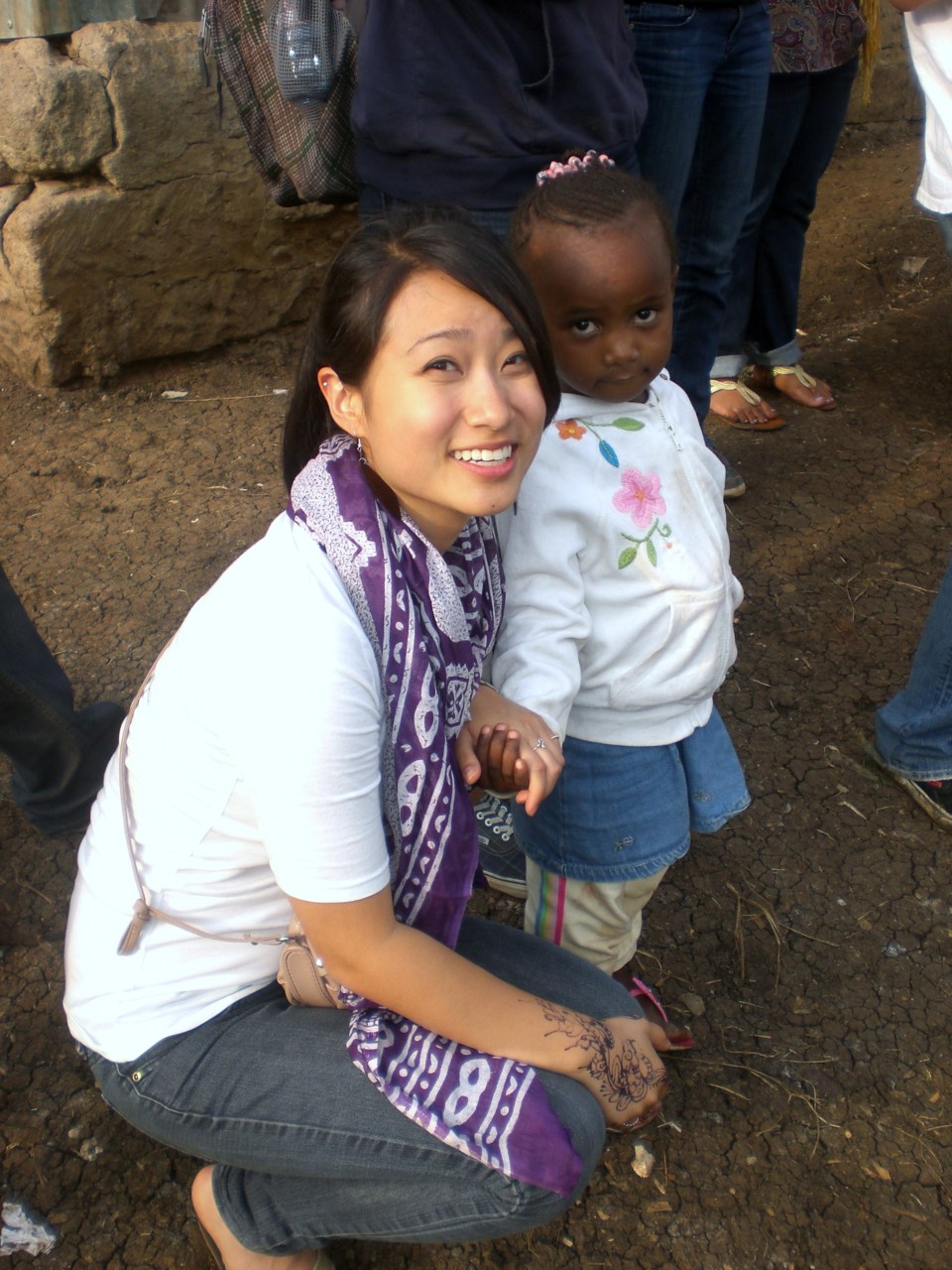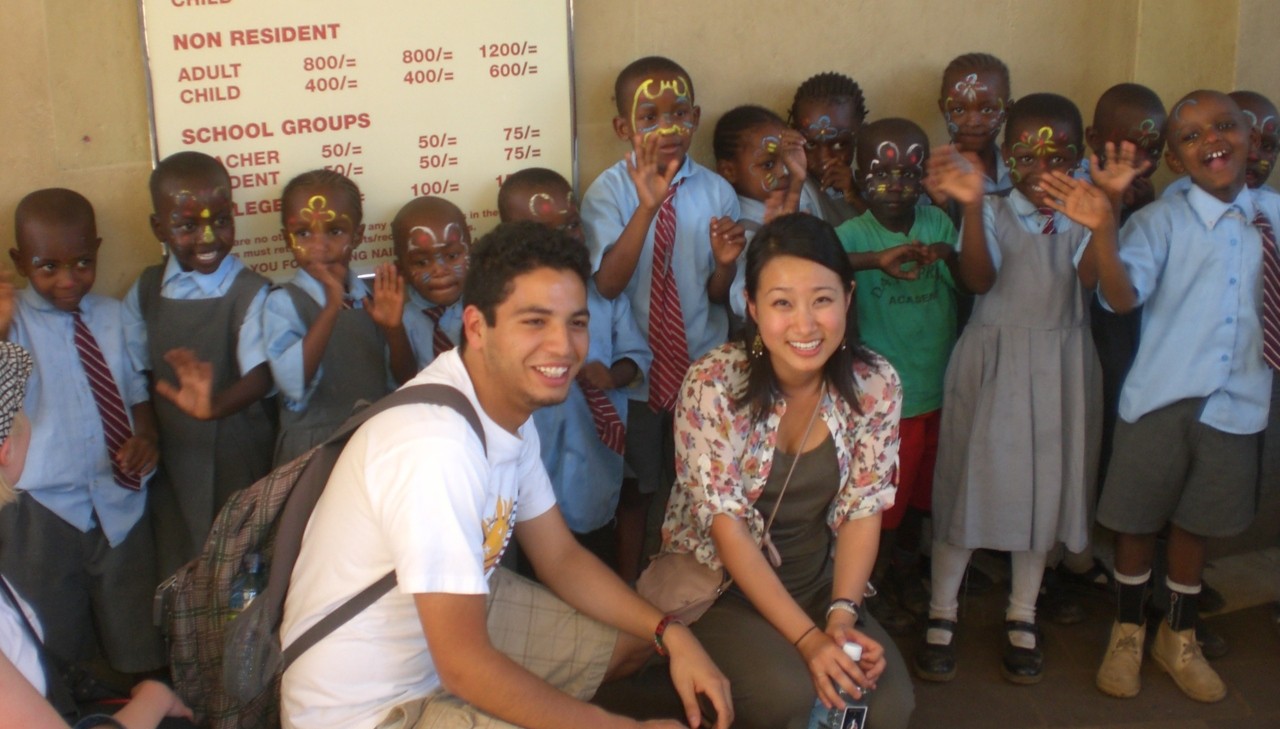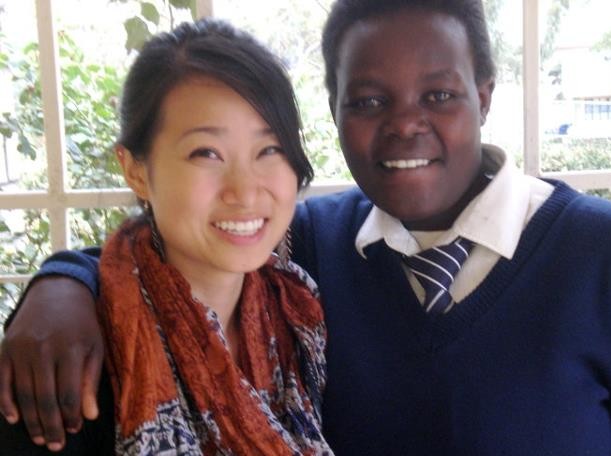Guest Post: A Pessimist’s Journey to Kenya to Find Reason for Optimism
Emily is a student at UC Berkeley majoring in Legal Studies and Political Economy. She hopes to work with individuals or organizations to examine the dynamics of the global community and role of diplomatic solutions in addressing problems threatening individual security and freedoms. I met Emily through our involvement in Cal Do Something, an organization that focuses on empowering and supporting young people to take action. This is her story about her trip to Kenya this past summer. She blogged too.
My decision to go to Kenya this summer was practically an act of desperation. After years of working to address human rights issues, figure out political crises, understand the cause and escalation of impoverishment and suffering, and somehow someway find a way to create a little bit of change, I was burnt out and depressed. I needed to go and see real people, hear their stories, hold their hands, and remember why I ever believed in fighting. I spent two months in different areas of Kenya, studying, volunteering, interning, learning, laughing, complaining, and crying. Much of the work I did took place in orphanages and slums around Kenya’s main city, Nairobi.
A pessimist’s journey to find reason for optimism:
Kenya is a breathtakingly beautiful country. Yet my initial encounters were always marked by this shocking depression that took me off guard and hit me so hard. There were those moments I’d hide behind a bus and just sob, pretend I had something in my eye mid-conversation, or just run to the bathroom to be alone in my attempt to process things. It was overwhelming and exhausting.
They’ve endured famine, shameless government corruption like I’ve never seen it, huge groups of internally displaced persons and one of the largest in-flows of refugees, some of the biggest slums in the world, high rates of rape and sexual violence, starvation and gun conflict in the Northern regions, increasing environmental problems that exacerbate already existing land rights issues… I could go on forever. The election violence in 2007 left so many people with their homes in ashes. People would wake up to heads and limbs rolling around on the streets and they’d have to hide out in their fields all night and day, praying that the gunshots they heard weren’t killing their loved ones.
 But you know, the amazing thing about Kenyans is that they are incredibly strong. Resilient. They keep fighting and they refuse to give up, no matter what the circumstances look like. They believe with all their hearts that Kenya can become a great nation. They actually read the news, have intense and productive conversations with peers about policies, and take personal interest in the course of politics. All the university students I speak to want to create change for their communities and the larger society; they’re not concerned with wealth or stability. Community members take initiative to create organizations to improve sanitation, safety, tolerance, and education.
But you know, the amazing thing about Kenyans is that they are incredibly strong. Resilient. They keep fighting and they refuse to give up, no matter what the circumstances look like. They believe with all their hearts that Kenya can become a great nation. They actually read the news, have intense and productive conversations with peers about policies, and take personal interest in the course of politics. All the university students I speak to want to create change for their communities and the larger society; they’re not concerned with wealth or stability. Community members take initiative to create organizations to improve sanitation, safety, tolerance, and education.
Despite everything that has happened, everyone clings on to democracy as their lifeline. People are informed, hold dear to their opinions, and commit everything that they have to making things better than they are now. All this while they live in substandard conditions, work incredibly hard for alarmingly low wages, attempt to provide for their children… they possess so little, yet they have so much to lose. Obama talks about the audacity of hope- yupp, it’s because he’s Kenyan.
At first, I wondered if it was just foolishness. Perhaps their idealism was a coping mechanism. Sure, I admired their steadfast belief and dedication, but I didn’t get it. How? Why? Are they just naive? How can change really happen?
But then, ah hah! I became Kenyan. No, I wish.
I learned what it really means to recognize change. It’s when you see roads being constructed and realize this wouldn’t have happened under the government’s organization 15 years ago. Or when you visit a slum neighborhood that was once infamous for violence and crime, but even though you’re a “wealthy” foreigner, you’re not attacked or harassed. Or when you see kids washing their hands with soap because now they know what can get them sick. Or when you see women walking through the busy streets with laptop bags and really cute high heeled shoes, unafraid to yell at a man who dares make a catcall at her.
Yes, it will take years, decades, lifetimes, and generations to really address and reform the problems in Kenya. But it’s the everyday people who are instigating and leading the very many little changes that are making life better. A cab driver I met probably said it best,
“I see small change, so I know things will change. It is difficult, but things are changing. The picture is different.”
Comments are closed.




Emily will always be the saver of the world in my book :) She is amazing!